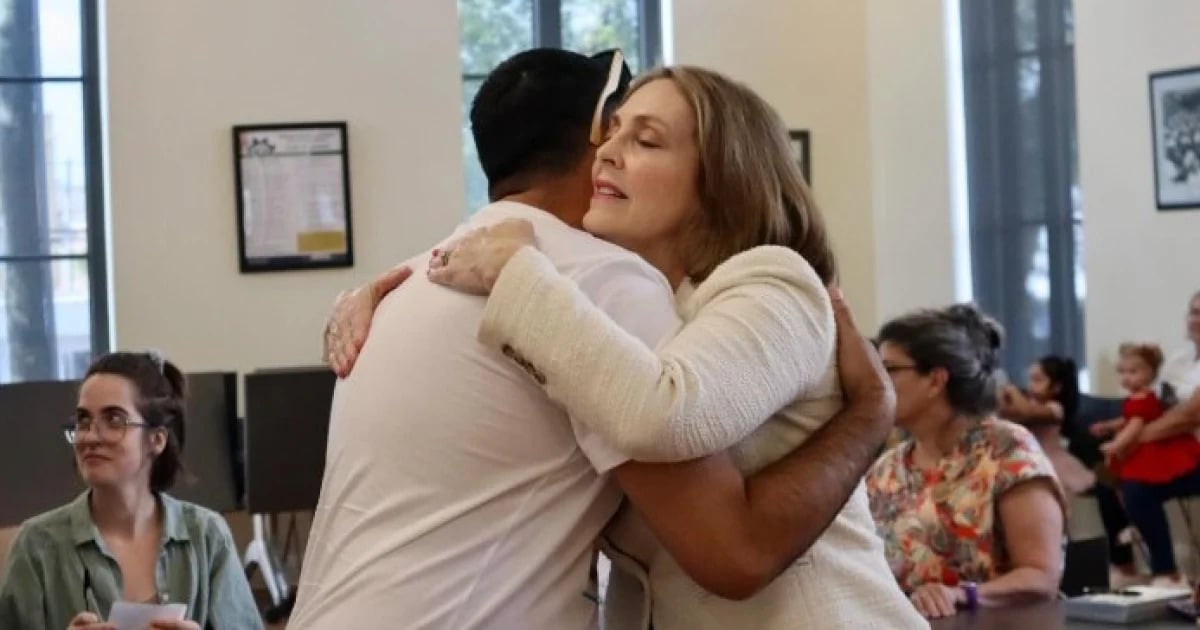Tampa's Democratic Representative, Kathy Castor, recently held a meeting with Carlos Yuniel Valle, the husband of Heidy Sánchez, a Cuban mother who was deported not long ago. "We are exploring every possible avenue to reunite this family, and unfortunately, we are still awaiting a response from the White House regarding their unlawful actions," Castor shared on her Instagram account.
In her role representing Florida's 14th district, Castor described the situation as both alarming and outrageous. "The Trump administration is tearing families apart for political gain," she wrote. Castor has been vocal in condemning Heidy's deportation, which left her husband and their one-year-old daughter behind in the United States. The infant, still nursing, was hospitalized shortly after the deportation due to the distress caused by her mother's sudden absence.
The Emotional Toll of a Sudden Separation
The congresswoman characterized the incident as "cruel," "unlawful," and "a significant blemish on the Trump administration," holding them accountable for what she termed an "extremist deportation agenda." Castor met with Carlos Valle to gain firsthand insight into the emotional and medical turmoil inflicted on the family by this separation.
An Unanticipated Deportation
Heidy Sánchez was living in Tampa, working as a home health aide. She possessed a I-220B immigration document, which serves as an order of supervision allowing her to remain in the U.S. while her deportation process was under review, provided certain conditions were met. Despite adhering to her obligations with Immigration and Customs Enforcement (ICE), which included attending scheduled check-ins, her last appointment was unexpectedly moved up, resulting in her detention and deportation within hours.
Immigration attorney Claudia Cañizares, who represented Sánchez, explained that compliance with check-ins and marital ties to a U.S. citizen do not automatically secure a resolution. "It depends on the actions taken, such as filing a family petition or seeking a pardon for the deportation, and whether the correct steps were taken to avoid reaching this unfortunate outcome," she noted. Cañizares emphasized that actions regarding I-220B should be made months in advance. "Having an attorney present on the same day doesn't ensure anything," she warned.
Advocacy for Humanitarian Parole
In a letter addressed to President Trump, Castor demanded the immediate granting of humanitarian parole to allow Sánchez's return and reunification with her family in Tampa. "The treatment of the Sánchez-Valle family is offensive to American values and constitutional protections. You have the authority to grant humanitarian parole to Mrs. Sánchez and reunite this family in Tampa today," the congresswoman asserted.
She also highlighted the dire conditions Sánchez faced upon her return to Cuba: "Due to the oppressive environment and scarcity of essentials such as food and clean water in Cuba, Mrs. Sánchez should not be sent back to a country where she will suffer and face harm."
A Family Torn Apart and a Nation Divided
The deportation of Sánchez has sparked outrage beyond the halls of Congress. Through social media, her husband, Carlos Yuniel Valle, has openly shared his pain and frustration. In a Facebook post, he expressed gratitude for Castor's support while criticizing the silence of other political figures. "My God, I can't bear to see my wife suffer like this. Where are the human rights of this country?" he questioned, directly addressing Congresswoman María Elvira Salazar, a Cuban-American Republican, urging her to speak out about the case.
Speaking with Telemundo from Cuba, Heidy Sánchez described the emotional impact of her deportation and the anguish of being unable to hold her baby. She arrived on the island with 82 other deported migrants, amidst fear and uncertainty. "I ask you once more to help us, to continue doing everything within your power," she pleaded in an interview with CiberCuba.
An Ongoing Legal and Moral Battle
Sánchez's case has become emblematic of the clash between stringent immigration policies and the family values that supposedly underpin the nation. Castor, unwavering in her stance, has intensified her efforts in Congress: "The Trump administration is blatantly lying when it claims to be pro-family, while the president pulls a nursing baby from her mother's arms to fulfill his extremist deportation agenda." From Tampa to Washington, pressure mounts on the White House to address what many now see as a preventable tragedy and an act of institutionalized injustice.
For the Sánchez-Valle family, every day is crucial. "I'm missing my life, my everything," Heidy echoes from Cuba. Her pain reverberates with the silent cries of countless separated families.
Understanding the Impact of Deportation Policies
What is an I-220B immigration document?
An I-220B is an order of supervision that allows individuals to remain in the United States under certain conditions while their deportation case is pending.
Why was Heidy Sánchez deported despite her compliance?
Despite complying with all requirements, Heidy Sánchez was deported due to ICE unexpectedly advancing her appointment and detaining her, highlighting the unpredictability of immigration enforcement.
What actions are being taken to reunite the Sánchez-Valle family?
Kathy Castor and other advocates are calling for humanitarian parole to allow Heidy Sánchez's return to the U.S., emphasizing her family's rights and the harsh conditions in Cuba.
